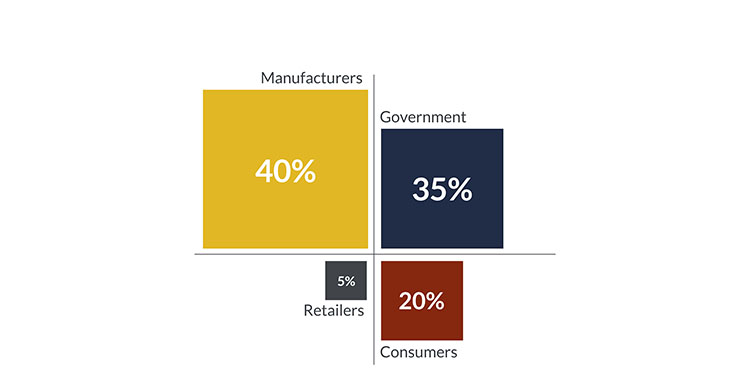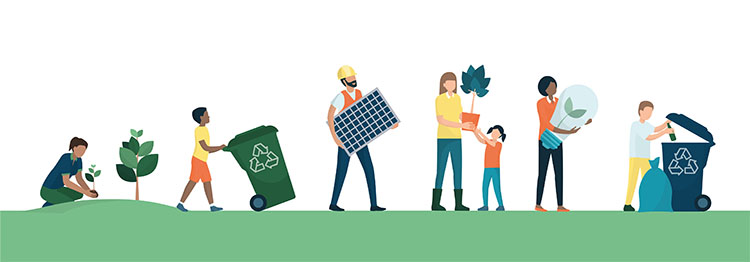

The latest research from GfK shows that shoppers are increasingly changing their behavior as a result of their concerns about the environment. 4 in 10 (42 %) of European households say that they are directly affected by environmental issues. In Europe, it is children that are the most persuasive in influencing household shopping behavior, and consequently both manufacturers and retailers need to address the younger generation’s concerns if they are to remain relevant.
When it comes to attitudes towards sustainability, more than 1 in 3 households in Europe has stopped purchasing services and/or products because of their impact on the environment or society. In other words, sustainability and caring for the planet has become – in some countries it is already – a mainstream consumer concern. No brand can therefore afford to ignore it.

In 2019 when this survey was initiated, the environment was already important to young people, with ‘Fridays for Future’ demonstrations sweeping the globe. In 2020, as consumers locked down and faced the threat of a global pandemic from their homes, it seemed that the environmental issues might take a back seat, but that was not to be the case, and it has remained at the top of many household agendas. It’s the younger members of families that are having the most influence on family shopping trends. In Europe, household behavior is primarily influenced by children (45 %), followed by: friends (42 %), spouse (37 %) and parents (19 %). They may be young, but children are more persuasive than politicians (14 %), media influencers (13 %) and celebrities (9 %).
The 2020 data shows that shoppers increasingly believe that their buying behavior can make a positive difference to the environment. At 40 %, manufacturers are still regarded as being able to have the biggest impact on the control and limitation of environmental damage, followed by governments at 35 %. At only 5 %, retailers are thought to be the least responsible.
3 out of 10 households make sure items they buy are not wrapped in plastic. In the era of COVID-19, when hygiene standards can save lives, it is all the more remarkable that so many consumers want to avoid packaging waste, and this is reflected in their shopping behavior.
*The focus to which the information refers is on ten European markets: Italy, Great Britain, Ireland, Germany, France, Slovakia, Czech Republic, Poland, Portugal and Spain.



